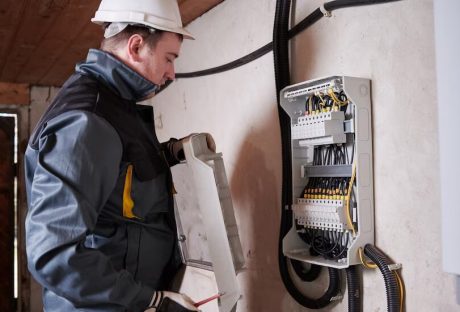Are you considering investing in the real estate industry but aren’t sure where to start? Vacant land is one of the most underrated real estate investments today. Most people overlook it because they assume it can’t produce income, and so it’s pointless.
But the truth is that raw land can give you serious financial benefits, of course, with the right strategy. And, not to forget, there is far less competition in the raw land market as compared to property investing. So, it is easier to squeeze a good deal.
That said, it does matter where you buy your land. So, is buying land in Austin, Texas, a sound investment idea? A few years ago, Austin was ranked by the U.S. News & World Report as the #1 place to live in the country.
But if that is not enough to convince you, here are more reasons to invest in land for sale in Austin, TX:
You Can Enjoy Tax Benefits
No one really enjoys paying taxes but you can’t avoid it. So, any opportunity not to pay some of these taxes without breaking the law is a great relief. Well, buying land in Austin, Texas, can qualify you for an agricultural, wildlife, or timber tax exemption. Provided you use the land for farming, grazing, timber, or wildlife preservation. These exemptions can actually save you huge bucks in property taxes annually.
Greater Freedom To Develop Your Land
Perhaps one of the biggest benefits of buying raw land in Austin is just how much freedom you get when it comes to using it. You see, with real estate in metropolitan areas, development is usually controlled, and you have to stick to a lot of regulations and guidelines. These controls can really frustrate you.
However, with raw land in Austin, you only need authorization from your local authorities. You can do anything you like with your land, whether that is constructing your home or business.
You Can Start A Business On It & Start Earning Revenue
Talking of development, you can actually turn your raw land into a money-making investment too. Austin is growing pretty quickly, which means that starting a business here is actually a great idea.
And even with rural land, opportunities to make money off your land are still plenty. For instance, you can open a bed & breakfast, camping ground, hunting grounds, etc.
Affordable Rates With Great Financing Options
Another thing that makes buying land for sale in Austin, TX, an excellent investment opportunity is land affordability. In fact, land in Texas is significantly cheaper compared to other parts of the country. And the good news is that you can be sure of scoring some very great deals if you know where to look.
But it does not stop there; Texas is also known for its great land financing options that make it easier for you to acquire land at a price you can easily afford.
You Can Write Off Some Expenses
Planning to use your Texas land for farming? You can also file a Schedule F in your federal income taxes, thereby writing off expenses incurred due to farming. This could even include interest on the loan you took to buy that land. Besides, you can claim interest on your construction loan if you decide to build on your land.
You Get To Own Rights To Minerals On Your Land
Austin, Texas, is a good place to buy land because you own the rights to any minerals you might stumble upon on your land. This gives you the authority to extract and sell the minerals.
The Texas Seller’s Market Is Booming
With Texas’s economy doing better than ever, the demand for land and property is skyrocketing. As a land or property owner in Texas, you are literally sitting on ever-appreciating capital.
Buying Land For Sale In Austin, TX, Is One Of The Best Investments You Can Make Today
If you have been thinking of investing in Austin, Texas, buying land might be an excellent idea. Besides the tax advantages, development freedom, and access to great financing options, you get to own land that appreciates over time. For the best experience, research enough and only purchase land that checks all your needs.
Read Also:
- Invest Real Estate in Detroit: 7 Things You Need to Know Before Buying Your First Investment
- Real Estate Syracuse NY Investment: Flipping Houses
- A Beginners Guide to Listed Investment Companies























